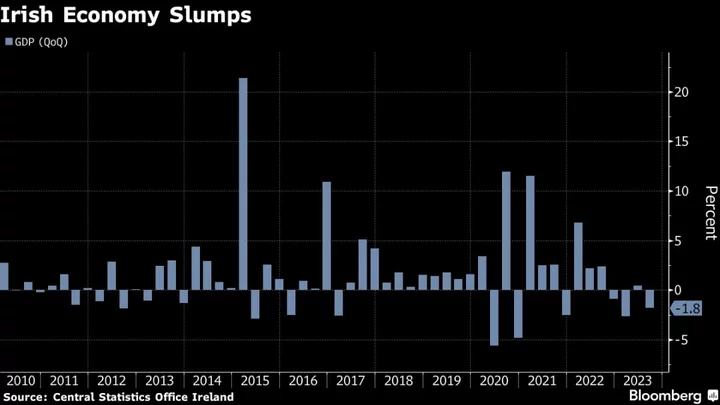Ireland contracted in the third quarter as the economy grapples with global factors hitting the out-sized number of multinationals based there.
Gross domestic product fell 1.8%, according to the official statistics office. That’s broadly in line with predictions from the country’s Economic and Social Research Institute, which forecast a decline of 1.6% earlier this month.
However, GDP is not generally considered a good indicator of the Irish economy because it can be distorted by the large number of international companies operating in the country, which have been impacted by rising inflation and high interest rates.
In contrast, Ireland’s domestic economy is performing close to capacity, with overall employment up. Modified domestic demand, or MDD, has been described by the ESRI as a more accurate reflection of domestic activity and has been forecast to grow by 1.8% in 2023.
Unlike most of its peers in the region, Ireland also has a fiscal surplus due to an increase in tax revenues.
Ireland is one of the first countries in the euro zone to release its preliminary GDP figures. Spanish data released earlier Friday showed growth slowing there. Meanwhile, figures for Germany due early next week are expected to show a contraction too.
--With assistance from Mark Evans.

